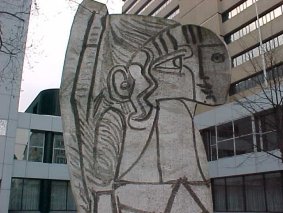Former home of the compassionate telepath
6.09.2006,12:18
inside my head

What percentage of people do you think have ever tried to articulate their conceptions of justice, fairness, and a good life? Have you? We all use these concepts, but I get the sense that relatively few people (say, those with liberal arts degrees) ever critically analyze their own conceptions, or even make it to the point of fully elucidating what those values are. For most people, I think these ideas form some kind of unconscious matrix that governs behaviour, moral development, political decision making, and even notions of how we ought to treat one another. When I go back to do my MA and write my thesis, it will be somewhere around this question: how do we form our conceptions of justice and fairness? What are points of intervention in this often-unconscious process that can be used to bring these ideas into the realm of conscious consideration, towards the creation of a more just society?
As a teacher-to-be, this question fascinates me. I see young people using these ideas, but struggling to articulate them. I see students clearly parroting their parents, while others make conscious decisions to uphold of reject aspects of these familial values. It is, if anything, a mediated process, with a wide range of inputs. I watch students struggle with popular conceptions, for example, Bono's ideas about justice and equity, to try to fit aspects of those ideas into their own value matrices. I also watch students wind up with a far greater sense of entitlement than justice or fairness. By not discussing these notions, not engaging our youth in those discussions, and not expecting young people to consciously and critically assess their ideas about justice (fairness, equity, social responsibility, etc.) we send the message that those ideas aren't important - at least, not nearly as important as the ideas we do expect our young people to grasp and engage: material success, "making it," and so forth.
When I look around me, I can't help but think that many of us consistently act on conceptions of justice or societal good that we would be horrified to articulate and that, if articulated, we would increasingly realize, do not represent the values we consciously hold as important. By letting these ideas stay dormant, out of the spotlight, we are perpetuating injustice. The very act of considering or discussing justice actually serves to make one a more just person. I don't expect that my attempts to have these discussions in the classroom will initially be well received, but I do think that young people are capable of engaging with these ideas, and it seems increasingly urgent that they do so - our very world depends on it.
Ask yourself a question next time you leave the house: what is justice? Do my actions right now uphold that idea? You will have done your part towards saving the world.